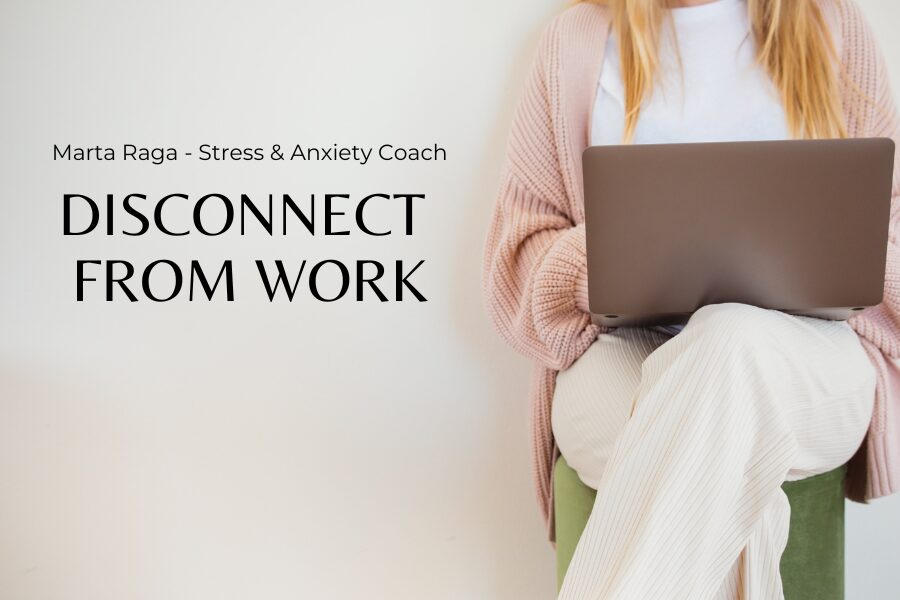Overwhelmed at work?
You’re not alone. Juggling deadlines, managing colleagues, and maintaining a healthy work-life balance can be a significant source of stress.
In this post we will share 3 very effective strategies to reduce Stress at work.
By developing essential skills in setting boundaries, effective communication, and self-advocacy, you can transform your work experience into a calmer and more productive one.
Let’s dive into each of these strategies:
1º-Setting Boundaries to Reduce Stress at work
Feeling
To reduce stress at work Boundaries are essential for maintaining a healthy work-life balance and overcome stress.
Here are some effective tools and strategies:
- Identify Your Limits: Recognize what you can realistically handle and what might be pushing you past your capacity. (workload capacity, work-life balance assessment..) changing unrelaistic expectations for realistic goals is a very effective strategy to reduce stress.
- Communicate Clearly: Inform colleagues and managers about your availability and preferred communication methods. (“Do Not Disturb” hours, communication channels policy)
- Learn to Say No: Don’t be afraid to politely decline additional tasks that would overload you. (“Let me check my schedule” technique, prioritizing tasks based on workload)
- Respect Other People’s Boundaries: Be mindful of colleagues’ time and avoid overstepping their boundaries. (Respecting colleagues’ “Do Not Disturb” hours)
2º.- Effective Communication: The Key to Clear Expectations and Reduced Misunderstandings
Effective communication can significantly reduce stress at work by ensuring everyone is on the same page.
Here are some key strategies:
- Active Listening: Pay close attention to what others are saying, both verbally and nonverbally. (Mirroring body language, repeating key points for confirmation)
- Clear and Concise Communication: Express your ideas and requests in a clear and concise manner. (Using bullet points and summaries, avoiding jargon)
- Ask Clarifying Questions: If something is unclear, don’t hesitate to ask questions to ensure understanding. (“Can you elaborate on that?” technique)
- Empathy and Respect: Show empathy and respect for different communication styles and perspectives. (Using “I” statements to express feelings, acknowledging different viewpoints)
3º-Self-Advocacy with DTR techniques: Your Free Tool to De-stress in less than 15 minutes
Empower yourself with self-advocacy skills, you can now leverage the power of the DTR technique to reduce stress at work and maintain your calm throughout the workday.
DTR stands for Deep Trance Relaxation, a simple ,it only takes 15 minutes, yet effective tool to help you:
- Regain Calm: DTR guides you into a state of deep relaxation, reducing stress hormones and promoting a sense of peace.
- Sharpen Mental Focus: By quieting your mind and clearing distractions, DTR enhances your ability to concentrate and perform at your best.
- Release Physical Tension: DTR helps to melt away physical tension, leaving you feeling refreshed and rejuvenated.
Ready to experience the benefits of DTR for yourselfi in less than 15 minutes?
Many clients find success incorporating 15-minute DTR sessions throughout their workday to De-stress 100 times quicker and easier. They schedule them before stressful meetings, during your lunch break, or at any point when they need a quick recharge.
With practice, you can even master the technique in just 5 minutes!
We’ve included our free sample DTR experience for you to try!
Click here👇 to grab your free session before it’s gone.
Remember, prioritizing your well-being is crucial for optimal performance.
DTR is a powerful tool to help you reduce stress at work, boost your focus and productivity, and stay calm throughout your busy workday.

By mastering these three crucial skills – setting boundaries, effective communication, and self-advocacy using the DTR technique – you can significantly reduce stress at work and create a more positive and productive work environment.
Remember, prioritizing your well-being is essential for long-term professional and personal success.
Reduce stress at work, advocate for yourself, and build a work life that empowers you to thrive!
To your wellbeing,









0 Comments